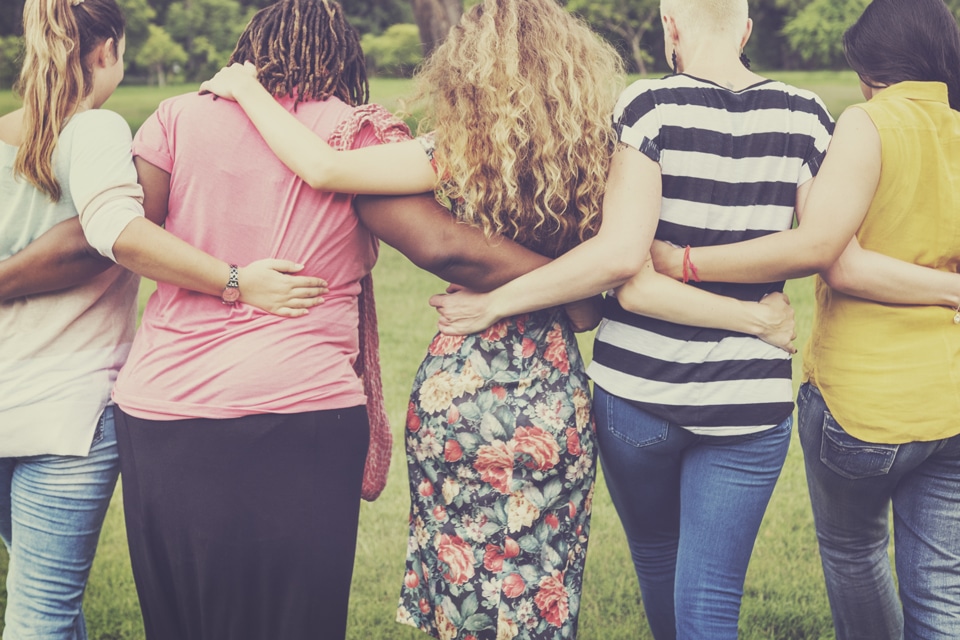March 8th is International Women’s Day, a day to salute the trailblazers and everyday heroes who bring about change in our community.
We’re taking a moment to applaud and support every woman who has tackled personal or public challenges with alcohol. Committing to creating a healthy lifestyle for yourself, and your family is so worth celebrating. Wherever you are on your journey from being sober curious, reassessing alcohol in your life, or choosing to abstain, we’re constantly inspired by you and your commitment to make changes.
Hello Sunday Morning also sends our admiration out to women across Australia advocating for and contributing to the conversation around alcohol consumption.
We’d like you to meet these five women who inspire us through advocacy for healthier relationships with alcohol:
Dr Nicole Lee
Specialist alcohol and drug consultant, Adjunct Professor and Hello Sunday Morning Clinical Governance Board member
Nicole is the founder and CEO of 360Edge, a specialist alcohol and other-drug consultancy, and Adjunct Professor at the National Drug Research Institute Curtin University. She also chairs the Clinical Governance Board Committee of Hello Sunday Morning.
Nicole is a member of the Australian National Council on Alcohol and other Drugs, Australia’s key expert advisory council to the Australian Government on drugs, and the board of the Australian drug checking service, The Loop Australia. She’s internationally known for her impactful 30 years of expertise in research, design and implementation of alcohol and other drug policy and practice responses.
Not only that, Nicole’s also a consultant psychologist and Fellow of the Australian Association for Cognitive and Behaviour Therapy, contributing to research that informs decision making.
Jill Stark
Author, mental health advocate and public commentator on anxiety and quitting drinking
Jill Stark’s hard-won lessons from a life-long struggle with anxiety offer hope and connection to anyone doing it tough. Jill’s book ‘When You’re Not OK‘ and her blog documents her pathways from worrier to warrior, highlighting the realities and victories she experienced in giving up alcohol and encouraging others to do so. You can read Jill’s story here.
Shanna Whan
CEO and founder, Sober in the Country
Countless people in regional areas have been encouraged to take a look at their relationship with alcohol thanks to the efforts of Shanna Whan, Australian of the Year Local Hero for 2022. After struggling with alcohol addiction, Shanna founded grassroots charity, Sober in the Country to help others on a similar path.
Yumi Stynes
Podcast host, author, TV and radio presenter
Yumi Stynes is an Australian television and radio presenter, podcaster and author living in Sydney. She is the co-host of KIIS FM’s 3PM Pick-Up radio show and presenter of the ABC Radio podcast Ladies, We Need to Talk about female health and sexuality. Yumi regularly shares her story about her changing relationship with alcohol.
Dominique Robert-Hendren
Dominique Robert-Hendren is a leader in mental health strategy and innovation. With her background as the National Mental Health Programs and Services Director for Australia’s largest private health care organisation, Dominique was pivotal in leading innovative models of care, establishing digital telehealth services and award winning mental health programs.
In recent times she has been a respected member of the COVID-19 Response and Restart Team, overseeing Employee Mental Health and Wellbeing Strategic Framework for Frontline Workers and Executive Leaders.
In her role as a Mental Health Executive for Hello Sunday Morning, Dominique heads the digital health innovation strategy, research and new models of care. She is also Chief Clinical Psychologist and a psychology board-approved supervisor. Dominique’s expertise has been instrumental in producing vital evidence-based resources for the community at large like:
Australian women, everywhere, inspiring change
Women like Lucy Bloom (Author and motivational speaker), Andy Quin (co-founder of ETCH Sparkling), and Kerrie Atherton have given other’s courage to make changes as well.
Every week on our social media we share a Hero of the Week.
Many are women who have made the decision to change their relationship with alcohol, and graciously share their struggles and wins along the way. Through Hero of the Week stories, others can discover what they stand to gain through reassessing, reducing, or quitting drinking.
Check out more stories here and don’t forget to share a message of support to a woman you admire this week too!
Let’s hear it for the girls and the collective social, economic, cultural, health and political achievements that women have made possible across the world.






